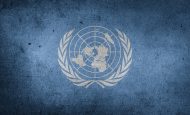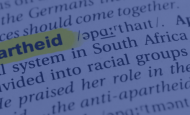Submission to the 2022 UN Commission of Inquiry
Full Article
Dear Judge Pillay, Mr Kothari, and Mr Sidoti,
I am instructed by the Institute for NGO Research to advise on allegations of apartheid in the Israeli-Palestinian conflict. I am writing to you further to my letter of 22 April 2022, a copy of which is enclosed. To assist with the exercise of your mandate, and in response to your call for submissions, I attached two reports to that letter, published in December 2021 and March 2022, that I co-authored with Anne Herzberg. The reports are titled “False Knowledge as Power: Deconstructing Definitions of Apartheid that Delegitimise the Jewish State,”1 and “NeoOrientalism: Deconstructing claims of apartheid in the Palestinian-Israeli conflict.”2 In “False Knowledge as Power,” Ms Herzberg and I offered a substantiated definition of the crime and inter-State prohibition of apartheid. In “Neo-Orientalism,” we expanded on the legal analysis by assessing whether there are reasonable grounds to believe that apartheid is being committed by Israeli officials in territories under its jurisdiction. The reports followed a contribution on the same topic I made in July 2021to the international law blog EJIL Talk!.3
At the end of February 2022, the International Human Rights Clinic at Harvard Law School, with the Addameer Prisoner Support and Human Rights Association, published a Joint Submission to the Commission of Inquiry (“IHRC/Addameer Submission” or “Submission”), alleging Israeli responsibility for apartheid in the West Bank.4 On 21 March, Michael Lynk (Canada), who then held the mandate as the UN Special Rapporteur on the situation of human rights in the Palestinian territories occupied since 1967, published a report examining the current human rights situation in the West Bank, Gaza Strip and East Jerusalem, and concluded that the situation there “satisfies the prevailing evidentiary standard for the existence of apartheid.”5
This letter offers a reply to the contributions provided by IHRC/Addameer and Mr Lynk and critiques the legal classifications and factual analysis which they adopt. It is not, nor does it purport to be, a point-by-point rebuttal of either document; instead, it is thematic in its approach and offers a critique of weaknesses in IHRC’s and Mr Lynk’s legal analysis, methodology, and assessments of the facts. It argues that both IHRC / Addameer and Mr Lynk avoid discussion of core legal and contextual elements, which is material to the errors which result – both in the legal analysis as well as in the factual assessments – and leading them to conclude that Israel and its officials are responsible for apartheid.
Click to Read the Entire Submission
Footnotes
- Joshua Kern and Anne Herzberg, “False Knowledge as Power: Deconstructing Definitions of Apartheid that Delegitimise the Jewish State,” 9 December 2021, available at https://ngomonitor.org/pdf/NGOMonitor_ApartheidReport_2021.pdf (hereinafter “False Knowledge as Power”).
- Joshua Kern and Anne Herzberg, “Neo-Orientalism: Deconstructing claims of apartheid in the Palestinian-Israeli conflict,” 21 March 2022, available at https://ngo-monitor.org/pdf/NGOMonitor_ApartheidReport_2022.pdf (hereinafter “Neo-Orientalism”)
- Joshua Kern, “Uncomfortable truths: how HRW errs in its definition of “Israeli apartheid”, what is missing, and what are the implications?” EJIL Talk!, 7 July 2021 available at https://www.ejiltalk.org/uncomfortable-truthshow-hrw-errs-in-its-definition-of-israeli-apartheid-what-is-missing-and-what-are-the-implications/ (hereinafter “Uncomfortable Truths”)
- “Apartheid in the Occupied West Bank: A Legal Analysis of Israel’s Actions-Joint Submission to the United Nations Independent International Commission of Inquiry on the Occupied Territory, including East Jerusalem, and Israel,” 28 February 2022 (hereinafter “IHRC/Addameer”).
- Michael Lynk, “Report of the Special Rapporteur on the situation of Human Rights in the Palestinian territories occupied since 1967,” 21 March 2022, A/HRC/49/87 (hereinafter “Lynk”), para. 55. The report is opaque as to the standard of proof to which it is referring.




